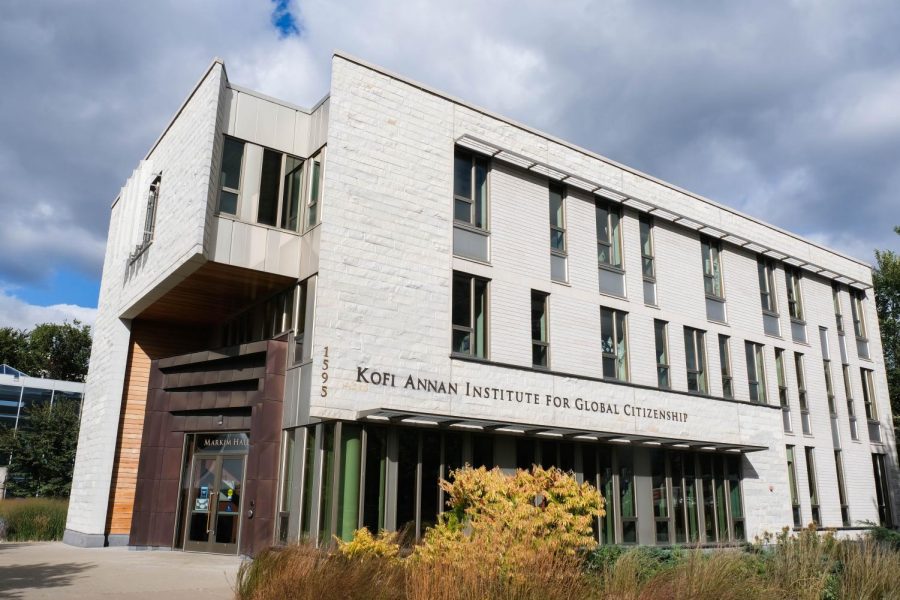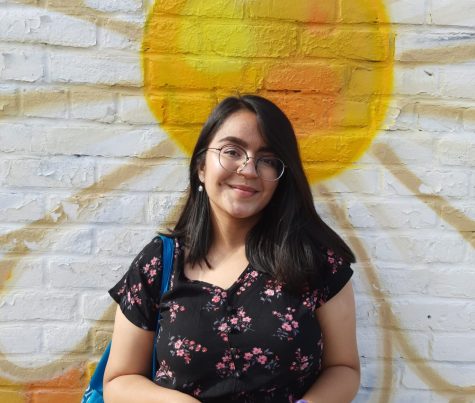Reflections on module one: the remote learning experience for international students abroad
October 15, 2020
With module one approaching its end, students, faculty and staff are reflecting on their experiences in this unprecedented pandemic. While this module has had several highs and lows, one category of students is pursuing a unique kind of virtual education. Macalester’s international students studying remotely outside the United States have defined “work from home” in their own ways, navigating time differences, visa issues, social interactions and more.
Incoming international first-year students, along with returning international students, have had to frequently modify their arrival plans due to COVID-19 cases, embassy closures and security concerns.
Director of International Student Programs (ISP) Aaron Colhapp noted that many international students are studying remotely both within and outside the United States. Although most returning international students studying remotely are currently in Minnesota, at least 61 are attending classes outside the country or are on a leave of absence. Among the first-year class, just 25 arrived on campus for module one while 45 are off-campus. Thus, approximately 37% of international students are studying remotely outside the United States.
Soon after enrolling, Aalyan Mahmood ’24 realized that he would attend his first college classes from his home in Pakistan, 10 hours ahead of Central Daylight Time. He praised the module system and noted that although the workload has not been easy, it has not been overburdening either.
“Professors have distributed the workload quite well,” Mahmood said. “While an added disadvantage is that you can’t work with other students outside class, many resources are made available by professors and Mac in general, so it is not that hard.”
Studying from her home in Guatemala, Stefani Westby ’22 agreed that the module system has made the workload more manageable compared to that during the previous spring semester when classes had to be suddenly held online and she had to manage four courses.
However, some seniors completing their capstone projects are struggling.
“It’s really hard to do a big research paper which is all about your major in just 7.5 weeks,” Ayushi Modi ’21, who is taking classes remotely from India, said. “I think there should have been a better way to incorporate a capstone into this system.”
The unpredictability of circumstances has also kept ISP on its toes. Along with issuing new I-20s for international students who have not been able to arrive on time, the ISP professional staff — Colhapp, Assistant Director of ISP Luyen Phan and ISP Coordinator Kara Warren — have encountered new challenges in providing guidance regarding work authorization and internships.
“Zoom is also a new way of communicating,” Warren said. “Our ISP mentors have also had to learn how to be a mentor to an on-campus student versus how to be a mentor to an off-campus student. That is new.”
Many students have acknowledged ISP’s consistent support, particularly those who have communicated with the staff regarding academic and travel support.
Modi appreciates ISP’s active communication during the summer in light of a directive published by the U.S. Immigration and Customs Enforcement (ICE). The directive prohibited students on F-1 visas from remaining in the U.S. if they were taking solely remote classes. This led to outrage, confusion and frustration amongst both students and colleges, forcing ICE to retract the directive.
“ISP has been helpful with emails and sessions,” Modi said. “They have started the procedure for extending our visas for OPT [Optional Practical Training] quite early. ISP has been very proactive.”
In the midst of managing virtual education, many students are finding comfort in their families and home-cooked meals.
“My four dogs are my emotional support,” Westby said. “My mom reminds me to eat and just take care of myself.”
While students report a relatively strong start to the academic year, online social interactions have not been as smooth. Time differences, awkward pauses and interruptions on Zoom and a general sense of disconnectedness have created barriers to meaningful conversations, the ability to partake in study groups and to attend office hours.
“While professors try a lot to connect the students, Zoom can only take you so far,” Mahmood said.
Throughout the summer and module one, the ISP staff has held several drop-in and more official informational sessions for international students to assuage doubts and to gauge and resolve the challenges that individuals and groups have been facing. Ensuring that all international students, regardless of their location, have access to resources to enable their education has been a priority for ISP.
For incoming first-year students, the student staff at ISP serve as mentors to help their transition to college and to the United States.
Mahmood expressed gratitude towards his mentors.
“The mentors are really assuring,” he said. “Talking to them helps you keep going since there is an additional layer of comfort with them.”
Many sleep-deprived nights, the effects (and after-effects) of Zoom fatigue, weak internet connections and several visa appointment cancellations later, most international students abroad seem to be embracing their unique remote education. Despite various bumps, the support and flexibility from professors, staff, friends and family have made a positive impact on the students.
“I often forget to put myself first,” Westby said. “My mom reminds me to do that.”
As U.S. embassies gradually resume work, more and more international students are hoping to arrive for the second or third module.
“After having two appointments canceled in one month, I finally got my visa,” Mahmood said. “So, in module two, I am going to catch up on the socialization that I have missed. It’s been a struggle for sure, but Mac has managed it so well that I couldn’t be more grateful for what they have done to help us.”














